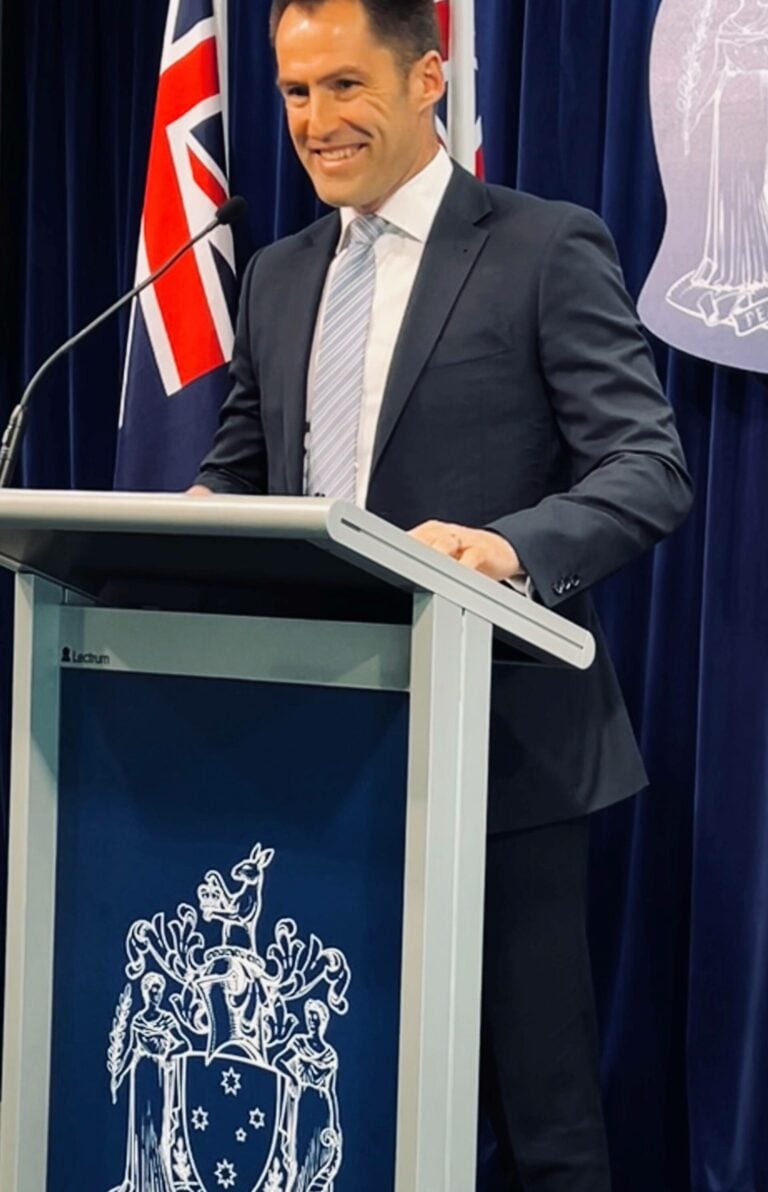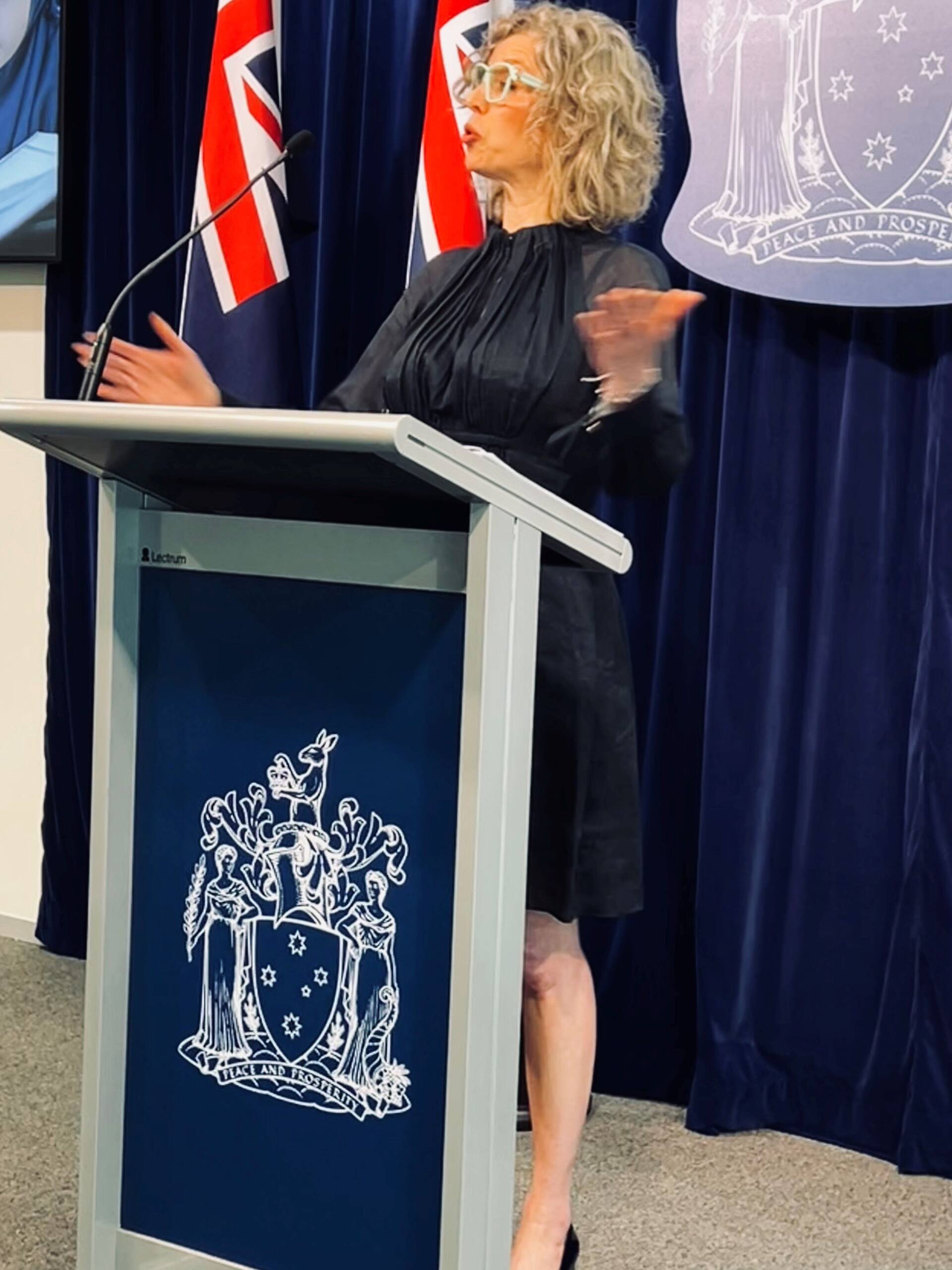Wednesday afternoon, September 13, the Victoria’s Parliamentary Secretary for Multicultural Affairs, Nathan Lambert, and the Parliamentary Secretary for Justice, Nina Taylor, called on multicultural media to inform communities about the broad consultation aimed at bolstering government reforms aimed at ‘strengthening Victoria’s laws against hate speech and hate conduct.’
The consultations follow a Parliamentary Inquiry report into the effectiveness of the state’s Anti-vilification laws. The Inquiry found that vilification is a reality for many Victorians from culturally diverse backgrounds, Aboriginal and Torres Strait Islanders, and some faith groups.
Ms Taylor said the Bill was introduced into parliament for debate, which will occur in the “coming weeks.
“The Attorney General is inviting your communities to make their voices heard on how we can best protect people from diverse cultural and faith backgrounds from hateful conduct,” said Ms Taylor.
Public consultations are now open through the Engage Victoria website.
Parliamentary Secretary for Multicultural Affairs Mr Lambert, also the Member for Preston and Reservoir in Melbourne’s North, reflected on the history and diversity of his seat.
He said that for post-war, like Greeks and Italians, it “was very tough”, and while racism still exists, we have moved “forward in an incredible way.”
“I hear about their experiences, and they are heartbreaking, and many of those experiences are like things that happen today, but [racism] was so noticeable and open back then.
“Migrants were discriminated against openly and were, (for example), told explicitly that the employer didn’t trust Italians or Greeks when going for a job.

Mr Lambert said there was no protection from racial vilification until the Racial Discrimination Act in 1975 and the Racial and Religious Tolerance Act of 2001, which he called “both big reforms by Labor governments.”
“It was a remarkable thing that back then, as they had no protection from bigotry, racism was not illegal, nor condemned by public figures,” Mr Lambert added.
He said that the Andrews Labor government is committed to “continuing that work”. He said that some of the excellent work done in reducing racism is because expressions of racism were “made illegal.”
Mr Lambert pointed to recent rises of racial vilification towards foreign students, “Chinese Australians during the Covid” pandemic, and “First Nations Australians and Muslim Australians”.
Parliamentary Secretary for Justice, Nina Taylor said the reforms and consultations “are much-needed work.”
“Hate conduct, hate speech and racism are complex issues and require time and extensive community feedback, especially from those they most often impact, to get reforms right.
Ms Taylor said the Attorney General is working with the Minister for Multicultural Affairs, Collin Brooks, “to engage multicultural communities, ensure there is proper consultation.”
The Labor government’s “leading reforms”, said Ms Taylor, include expanding the ban of the Nazi symbol, the Hakenkreuz, “the Nazi salute and related gestures used by the Nazi party.”
“The laws do, though, recognise the religious and cultural significance of the Swastika for Buddhist, Hindu, Jain and other faith communities, where it is a symbol of good fortune and peace,” added the Parliamentary Secretary for Justice.
She said the Victorian government wants to introduce “a new harm-based approach to restrict people from saying or doing anything that would cause harm to others.”
The consultation also seeks feedback on “the expansion” of the Victorian Equal Opportunity and Human Rights Commission’s (VEOHRC) powers “to implement these new laws.”

Neos Kosmos asked how a “harm-based approach” might impact free speech, given that some views may not be acceptable to some but are not seeking to vilify or are racist.
“That’s a fair point,” said Ms Taylor and added, “That is why it is important to have this consultation and to get genuine feedback from communities throughout the process.”
“That’s why we must do this due diligence before implementing those important reforms.”
Neos Kosmos asked how a ‘harm-based’ approach might impact non-racial but historic inter-ethnic, interfaith conflicts within multicultural communities.
Mr Lambert said that the “provisions for free speech are important”. He pointed to how people debate the merits or otherwise of migration if the debate is conducted “in good faith.”
“In the anti-racism strategy, we are conscious that for some religious groups, they are effectively racialised, particularly in the case that there is visible discrimination, for example, if someone is wearing a headscarf,” Mr Lambert said.
Consultations close on Monday, October 16 and submissions can be lodged through the Engage Victoria website.









